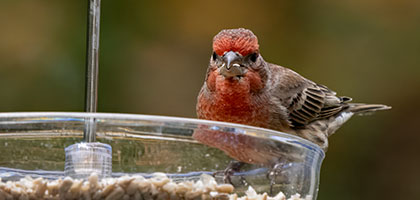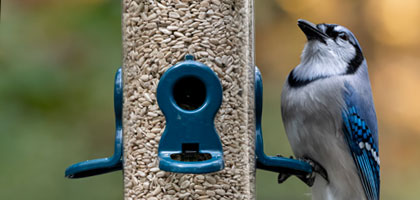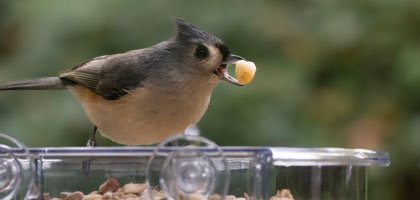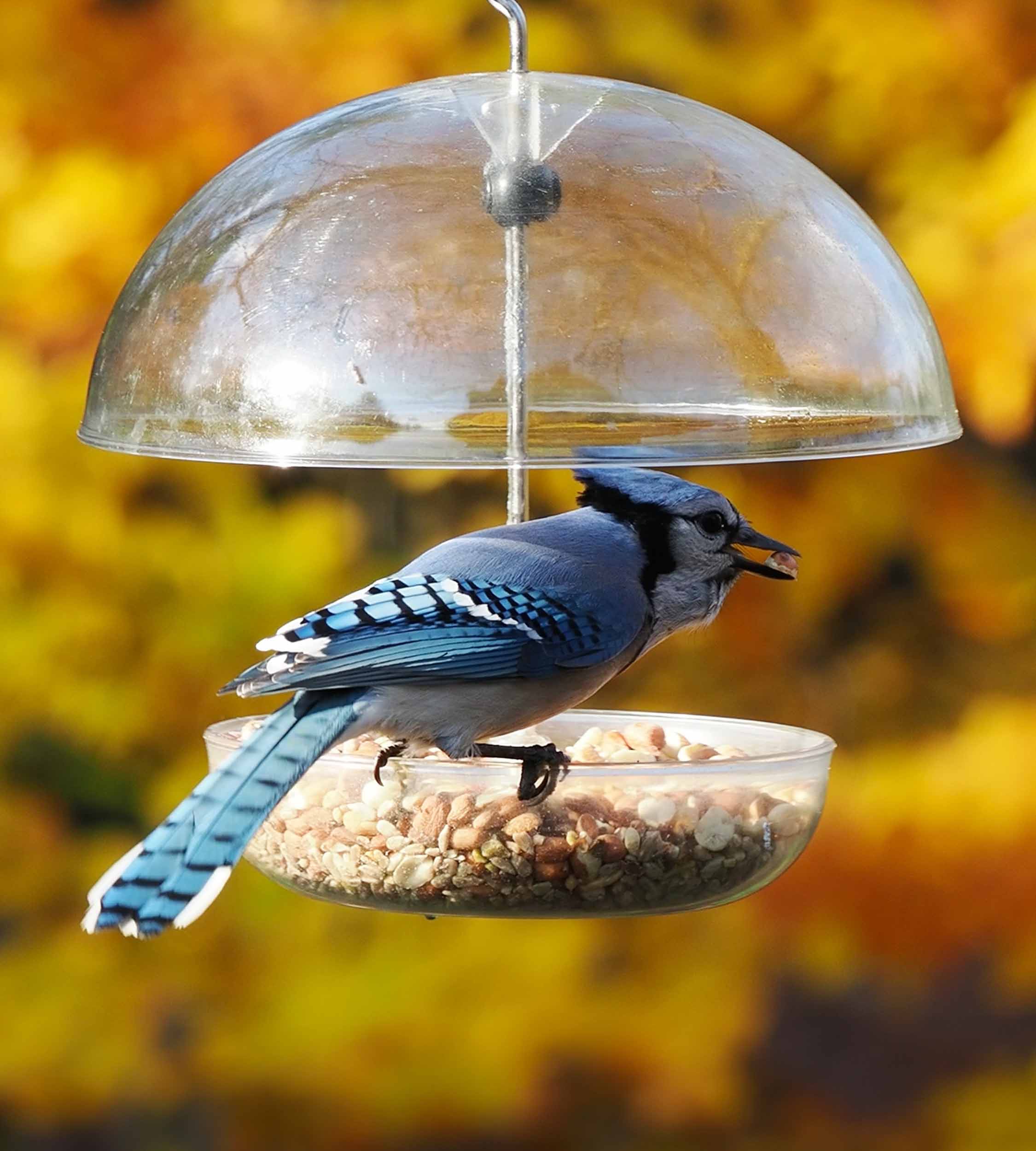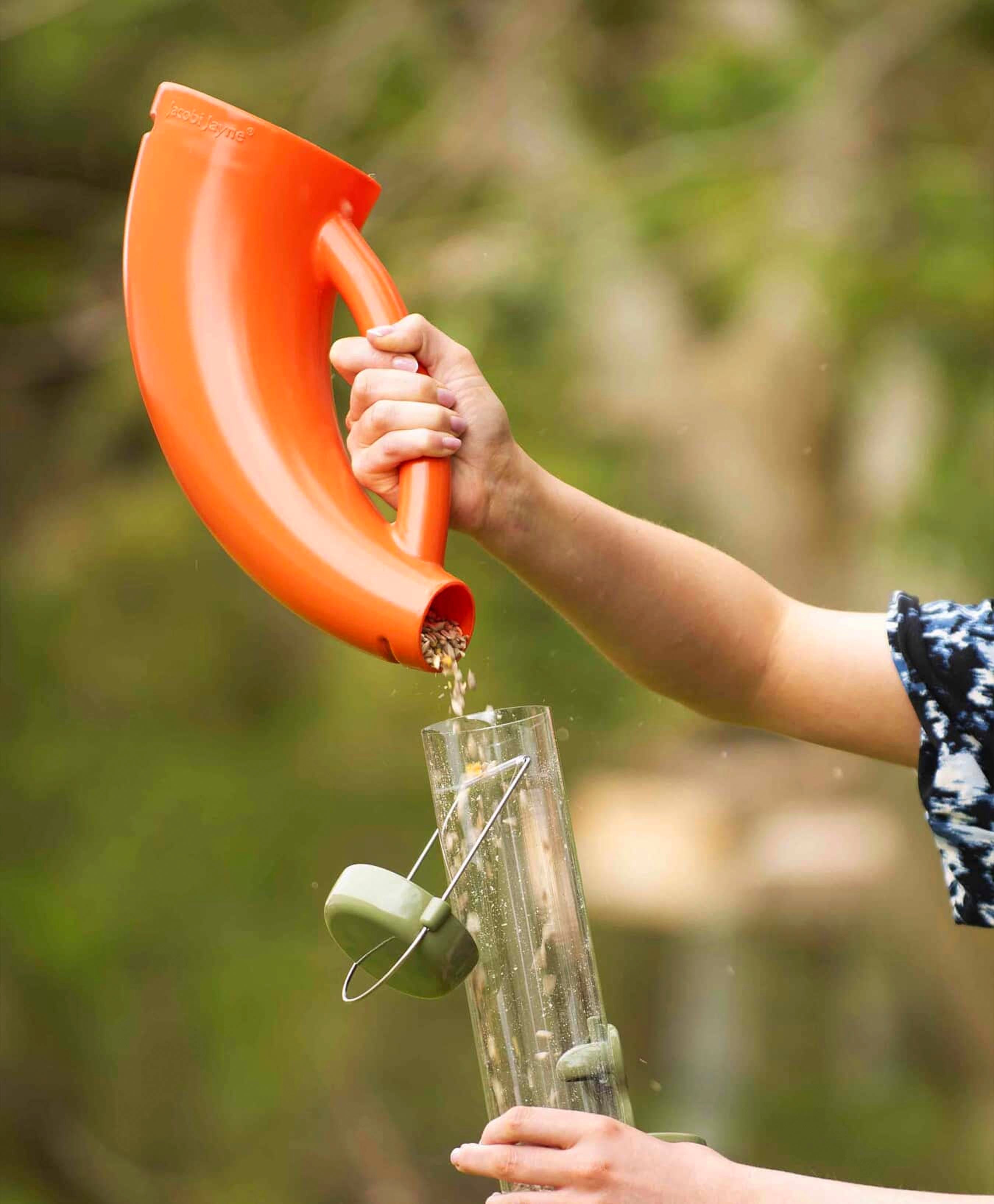Bird feeding is a rewarding activity. It brings a variety of feathered friends to your backyard, providing endless entertainment and a sense of connection with nature.
But what is bird feed? And how do you choose the right type for the birds in your area?
This guide will help you understand the different types of bird feed. From suet cakes and peanuts to fresh fruit and sunflower hearts, we'll explore the diverse world of bird food.
We'll also delve into the specifics of feeding different bird species. Whether you're hoping to attract bluebirds, woodpeckers, or finches, we've got you covered.
Choosing the right bird feeder is another crucial aspect. We'll discuss everything from large bird feeders to squirrel-proof options and window feeders.
Join us on this journey to become a bird feeding expert. Let's create a welcoming environment for our feathered friends together.
What is Bird Feed?
Bird feed is any food provided to wild birds. It aims to supplement their natural diet and attract them to specific locations.
Various types of bird feed cater to different dietary needs and preferences. Understanding these options helps create a balanced and appealing menu for birds visiting your garden. By offering diverse food types, you can attract a wide range of bird species, enriching your outdoor space with vibrant activity.
The Importance of Bird Feeding
Bird feeding supports local wildlife, especially during times when natural food sources are scarce. It provides essential nutrients to birds, helping them maintain energy and health throughout the year.
Beyond supporting bird populations, bird feeding offers many benefits for people too. Observing birds can be a peaceful and educational activity, fostering a deeper connection with nature. Additionally, birds help control insect populations and pollinate plants, enhancing the ecosystem in your garden.
Popular Types of Bird Feed
Choosing the right bird feed can attract a variety of bird species to your garden. Birds have different tastes and nutritional needs, so using a variety of feeds can be beneficial.
Common Bird Feeds
- Sunflower Seeds and Hearts: Loved by many birds like cardinals and chickadees, these seeds provide a high-energy food source.
- Suet Cakes and Pellets: Ideal for insect-eating birds such as woodpeckers, they are rich in fat and can be a great energy boost.
- Peanuts and Nut Blends: Peanut feeders are perfect for bluejays and woodpeckers, offering essential fats and proteins.
Specialized Seeds and Feeds
- Nyjer Seeds: These tiny, oil-rich seeds are favorite among finches and other small birds. They require special feeders.
- Mealworms and Insects: Protein-rich and ideal for insectivorous birds, mealworms can attract species like bluebirds.
- Mixed Seed Blends: A versatile option, these blends cater to multiple species and can include various seeds, nuts, and grains.
Selecting a variety of these bird foods can turn your backyard into a vibrant haven for birdlife. Each type offers unique benefits, satisfying different bird species and their dietary needs.
Specialized Feed for Specific Bird Species
Feeding birds with specialized feed can enhance the variety of species visiting your garden. Different birds are drawn to specific types of food.
Tailored Bird Feeding Choices
Certain birds like bluebirds are fond of fresh fruit such as berries and cherries. Offering these can attract them, adding splashes of color to your garden.
Woodpeckers prefer suet, a high-fat bird food that mimics their natural diet. Suet feeders are perfect for enticing these striking birds.
For orioles, nectar-rich food sources are ideal. These birds are also drawn to slices of oranges and berry jellies.
Seed Preferences
Finches are particularly fond of nyjer seed, a tiny seed that requires a special feeder to avoid waste. This seed is oily and beneficial to their diet.
Cardinals, known for their bright red plumage, enjoy sunflower seeds. These seeds are rich in nutrients and help sustain cardinals throughout the seasons.
Offering these specialized feeds can attract a wider range of birds, enriching your bird-watching experience. Each species brings its charm, making your efforts worthwhile.
Choosing the Right Bird Feeder
Selecting the correct bird feeder can greatly enhance your bird feeding efforts. Each feeder type serves a unique purpose and caters to different bird species.
Types of Bird Feeders
Consider whether a large or small bird feeder is suitable for your space and the birds you wish to attract. Large feeders hold more food and accommodate larger birds, while small feeders cater to small species and prevent food waste.
Feeder placement and protection are crucial aspects to consider. Squirrel proof and raccoon proof feeders can help keep unwanted animals away, safeguarding your bird food supply. These feeders often include designs like baffles or weight-sensitive perches to deter non-bird visitors.
Specialized Feeder Designs:- Large vs. Small Bird Feeders
- Squirrel Proof and Raccoon Proof Options
- Window Feeders for Close Observation
- Seed Feeders and Suet Feeders
For those looking for close bird encounters, window feeders provide a front-row seat to bird behavior without disturbing them. Meanwhile, seed feeders and suet feeders ensure that your bird feed remains accessible and appealing to the birds you aim to nourish. Each feeder type offers a unique way to enjoy bird feeding and cater to your feathered visitors' needs.
Homemade Bird Feed: A DIY Approach
Creating homemade bird feed can be both rewarding and cost-effective. It allows you to customize blends tailored to the local birds in your area. You can use ingredients readily available at home, like nuts, seeds, and fruits, to make nutritious blends.
Moreover, making bird feed at home gives you control over the quality of food you provide. Avoiding preservatives and additives ensures a healthier diet for visiting birds. As you experiment with ingredients, you'll learn which blends attract different species, enhancing your bird feeding experience and benefiting your feathered visitors.
Bird Feeding Best Practices
Practicing good habits is key to successful bird feeding. Ensuring the cleanliness of your feeders helps prevent the spread of diseases. Regular cleaning deters mold and bacteria, keeping the birds healthy.
Besides cleanliness, providing fresh water is essential. Birds need water for drinking and bathing, which enhances their visit to your garden. Consider adding birdbaths near feeders to fulfill this necessity.
Proper storage of bird feed is equally important. Keeping feed in a dry, cool place preserves its quality and nutrition. This prevents spoilage, ensuring the food remains safe and appealing to your avian guests.
- Maintaining Feeder Cleanliness
- Providing Water Sources
- Storing Bird Feed Properly
Conclusion: The Joy and Responsibility of Bird Feeding
Bird feeding brings immense joy to many bird enthusiasts. Watching colorful birds flutter around feeders creates a vibrant, lively atmosphere in any garden. It also provides an opportunity to learn about and appreciate local bird species.
However, with this joy comes a responsibility. Providing nutritious and safe feed is crucial for the well-being of visiting birds. Regular maintenance and thoughtful feeder placement can enhance the experience for both birds and observers alike. By caring for our feathered friends, we also contribute to a healthier environment and a richer biodiversity.
